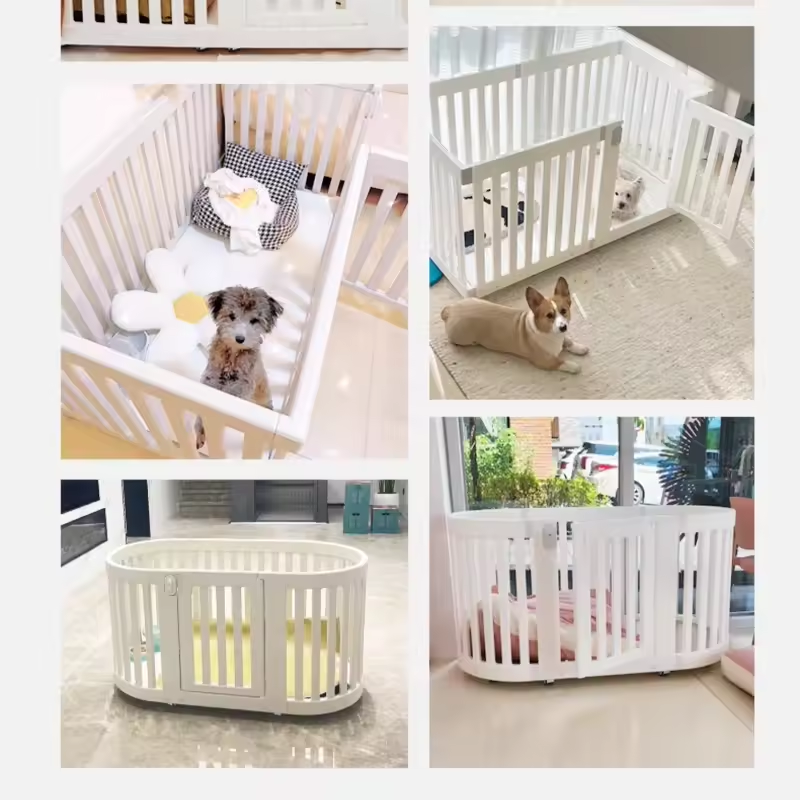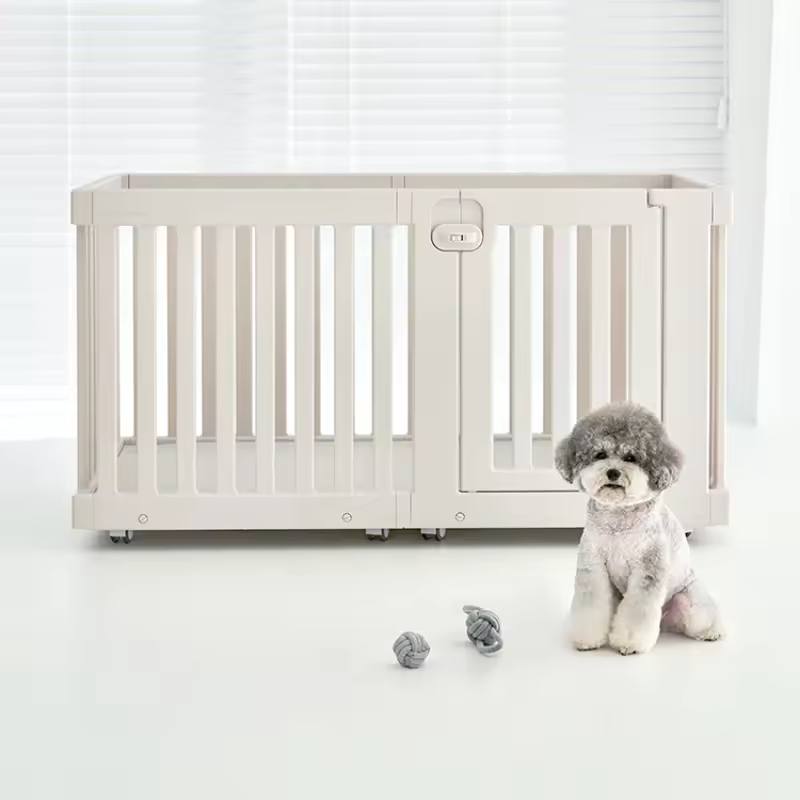What is Kennel Cough?
Kennel cough is a widespread respiratory illness in dogs. It leads to an inflamed windpipe and voice box, causing a distinctive cough. This condition resembles the human cold but affects canines. It is also known as canine infectious tracheobronchial. So, what is incubation period for kennel cough?

Common Symptoms of Kennel Cough
Kennel cough symptoms mainly include:
- A persistent, dry cough
- A honking sound, similar to a goose
- Coughing that appears as if something is stuck in the throat
- Possible sneezing, runny nose, or eye discharge
Most dogs with kennel cough otherwise remain active and maintain their appetite.
Viral and Bacterial Causes
Viral and bacterial pathogens cause kennel cough. Bordetella bronchiseptica bacteria are the most common culprits. However, viruses like parainfluenza and adenovirus type-2 are also to blame. Dogs often catch kennel cough when their immune system is down. This can be due to stress, cold environments, or exposure to smoke and dust.
The Incubation Period for Kennel Cough
Understanding the incubation period for kennel cough is crucial for managing kennel cough. This period refers to the time from exposure to symptom onset. For kennel cough, this typically ranges from 2 to 14 days. Knowing this helps prevent the spread of the infection.
Timeline of Contagiousness
During the incubation period, dogs may not show signs but can still spread the disease. Infected dogs are usually contagious for about 2 weeks after symptoms appear. It’s vital to isolate them during this time to prevent transmission to other dogs.
Factors Affecting the Incubation Period
Multiple factors can influence the length of the incubation period. These include the dog’s age, immune system health, and exposure level to the virus or bacteria. Stress, poor ventilation, and crowded spaces can also shorten the incubation period.
Transmission of Kennel Cough
Understanding how kennel cough spreads is key to preventing and controlling outbreaks. The transmission mainly occurs through airborne droplets. These come from infected dogs coughing or sneezing. Direct contact with an infected dog furthers the spread. Toys, bowls, and shared spaces can also carry the infection.
How Dogs Contract Kennel Cough
Dogs often get kennel cough in places with many dogs close together. These include kennels, shelters, and dog parks. The disease spreads when dogs inhale bacteria and virus particles.
- Contact with infected dogs increases risk.
- Sharing toys and bowls can transmit the illness.
- Cough and sneeze droplets spread it through the air.
Conditions That Increase Transmission Risks
Some environments make it easier for kennel cough to spread. Closed spaces with poor airflow are particularly risky. High stress can lower a dog’s resistance to infection.
- Crowded spaces like kennels can increase contagion.
- Poor ventilation allows droplets to linger in the air.
- Stressful environments weaken dogs’ immune defenses.
By knowing these risks, dog owners can take steps to keep their pets healthy. Vaccination and good hygiene help prevent the spread of kennel cough.

Diagnosing Kennel Cough
To diagnose kennel cough, vets look for common signs during a check-up. These include a dry cough, honks like a goose, and throat-clearing sounds. Sneezing and discharge from the nose or eyes might also show up. Your vet will ask about recent contact with other dogs and possible stressors. This helps pinpoint kennel cough as the cause of symptoms.
Clinical Signs and Veterinary Assessment
Recognizing clinical signs is the first step toward diagnosing kennel cough. Dogs with a honking cough may have this condition. Other signs are a runny nose, eye discharge, and light fever. Vets assess these signs to diagnose kennel cough in dogs. They consider the dog’s overall health and behavior too.
The Role of Medical Testing in Diagnosis
Mostly, kennel cough is diagnosed with symptoms and a health history. Tests are rare unless the vet suspects something more serious. If needed, swab samples can confirm if it’s viral or bacterial. But treatment usually doesn’t change with the test results. Knowing the incubation period for kennel cough is key for correct diagnosis.
Treatment Options for Kennel Cough
Dealing with kennel cough involves care at home and possibly vet intervention. Understanding treatment options can help your dog recover comfortably and quickly. During the treatment period, keep your dog away from others to avoid spreading the infection.
Home Care and Remedies
For mild cases, home care may suffice. Here are several steps you can take:
- Ensure your dog rests in a quiet and comfortable place.
- Offer plenty of water to keep them hydrated.
- Use a humidifier to moisten the air and ease their cough.
- Switch from a collar to a harness to reduce pressure on their throat.
- Avoid exposure to irritants like smoke or strong smells.
These actions often help manage symptoms. Monitor your dog’s condition and comfort. A cough that gets better without medical help is common. But if the cough persists or worsens, it’s time to consult a vet.
When to Seek Veterinary Care
If home remedies don’t improve your dog’s cough, or other symptoms appear, see your vet. Here are signs that need professional care:
- Cough lasts longer than a week.
- High fever develops.
- Appetite decreases.
- Unusual lethargy shows.
Your vet may prescribe antibiotics, cough suppressants, or anti-inflammatories. These medicines battle infection, ease coughing, and reduce throat swelling. Always follow the vet’s directions with any medication. Prompt care helps prevent severe complications like pneumonia.
Vaccination and Prevention
Preventing kennel cough is key in avoiding its spread. Vaccines play a crucial role here.
Importance of Vaccination
Vaccines help reduce the risk of kennel cough. They can make symptoms less severe if a dog does get sick. All dogs, especially those in high-risk environments, benefit from vaccines. Discussing vaccination with your vet is important for your dog’s health plan.

Bordetella Vaccine: Recommended Schedules
The Bordetella vaccine is common for preventing kennel cough. Vets usually suggest it for dogs that interact with others often. This includes those going to kennels or dog parks. Puppies can get the vaccine from as young as 12 weeks. Your vet can advise on the best schedule. Typically, they’ll recommend revaccination every 6 to 12 months.
Living with Kennel Cough
Caring for a dog with kennel cough requires patience and attention to their needs. Keeping them comfortable is vital, especially during recovery. Rest is important, as is ensuring they remain hydrated. A quiet, stress-free environment will help your dog recuperate faster. Using a humidifier can help soothe your dog’s throat, making them more comfortable. Switch to a harness instead of a collar to reduce pressure on their throat. Remember to monitor your dog’s symptoms and keep them isolated from other dogs.
Managing Symptoms and Isolation
When managing symptoms, observe your dog closely. Look for changes in coughing, appetite, or energy levels. Isolation is key to stopping the spread of kennel cough. Have a separate area where your dog can rest without contacting other pets. Maintain this isolation for at least two weeks after symptoms cease. Follow your vet’s advice on caring for your dog and keeping other animals safe.
Impact on Social Activities and Boarding
Kennel cough affects your dog’s social life and boarding options. Avoid dog parks, daycare, and any social dog gatherings. Postpone boarding plans until your dog has fully recovered. Inform any service providers of your dog’s condition. Always confirm with your vet when it’s safe for your dog to socialize again. This ensures your pet’s health and the well-being of others. Vaccination can help prevent some cases, so discuss this with your vet.
Recovery and Immunity
Recovery from kennel cough usually varies depending on the dog’s health.
Duration of Symptoms
Most dogs overcome kennel cough within one to three weeks.
Symptoms may linger for up to six weeks in older or immunocompromised dogs.
Consistent monitoring of symptoms is essential during the recovery phase.
Long-Term Health Considerations
Immunocompromised or elderly dogs can have longer-lasting health effects from kennel cough.
Post-recovery immunity to the same strain may last anywhere from six to twelve months.
Vaccination can aid in providing immunity against certain strains of the virus.
Discussing booster shots with a vet ensures ongoing protection for your dog.”